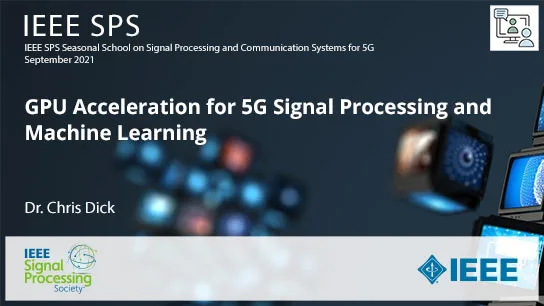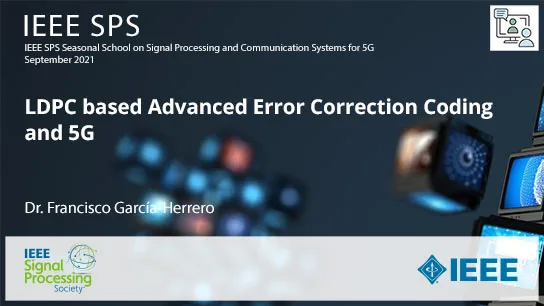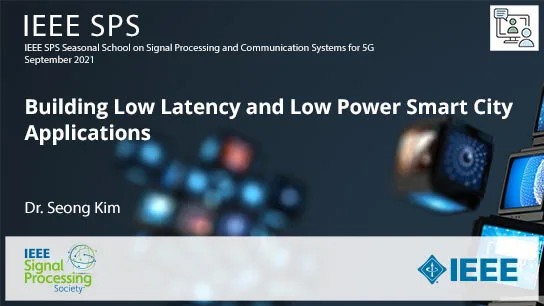Machine Learning for Next Generation Wireless Communication Systems 5G/6G
Mr. C Ashok Kumar Reddy
-
Members: FreeSPS
IEEE Members: $11.00
Non-members: $15.00Length: 3:34:41
With the emergence of fifth-generation (5G) networks, there has been a shift in the research focus towards exploring new technologies for the next-generation communication systems, sixth-generation (6G). The potential target expectations from 6G are to achieve even higher data rates, further reduction in latency and ultra massive machine type connection density compared to 5G. In this search for new technologies, there has been a significant interest in applying machine learning and artificial intelligence to communication systems. In this lecture, we motivate the AI/ML for wireless communications by starting with simple machine learning applications and similarities to communication use cases. During the course, you will learn about various wireless communication system blocks and the application of ML to them. We cover the applications at the physical and higher layers at both the base station and user equipment of the wireless communication system. Later we briefly discuss the possibility of an end-to-end conventional communication system replaced by an ML-trained communication system. We will observe that ML/AI does not give benefits all the time. In the later part of this lecture, we cover model-based and model-free systems and how they evolve with continuous improvements. We will further discuss and exercise a step-by-step procedure on designing an ML application for a wireless communication system with the constraints of complexity, timing, performance, and training requirements. By the end of this lecture, you will have learned about various blocks of communication systems that ML-trained systems can replace and where to apply and where not to apply ML/AI in wireless communication systems.


